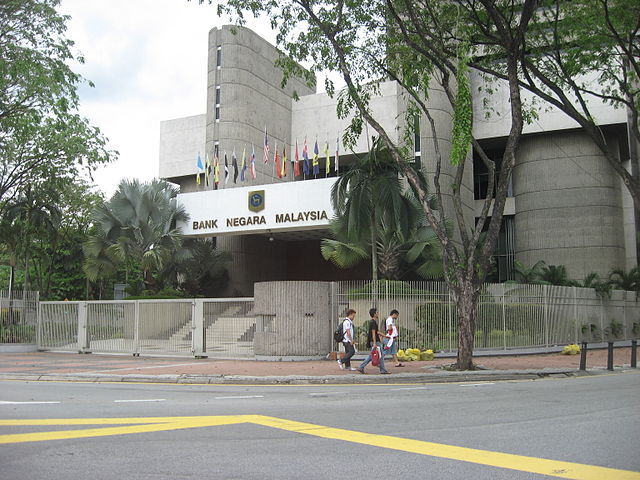 The Malaysian economy slowed to a 4.9% growth in the second quarter of 2015 compared to 5.6% in the first quarter, in response to a moderate expansion of the global economy for the period. On a quarter-on-quarter seasonally adjusted basis, the country’s economy grew by 1.1% from the first-quarter expansion of 1.2%.
The Malaysian economy slowed to a 4.9% growth in the second quarter of 2015 compared to 5.6% in the first quarter, in response to a moderate expansion of the global economy for the period. On a quarter-on-quarter seasonally adjusted basis, the country’s economy grew by 1.1% from the first-quarter expansion of 1.2%.
Malaysia is on the same page with the global economy, which also saw a moderately paced expansion, BNM Governor Dr. Zeti Akhtar Aziz said, in a recent report by state news agency Bernama.
“The global economy expanded at a moderate pace in the second quarter of 2015. Growth in most Asian economies moderated in the second quarter. Domestic demand continued to support growth in an environment of weak exports,” she said.
Prime Minister Datuk Seri Najib Tun Razak said the stable and moderate GDP growth in the second quarter indicated that Malaysia’s economy was in good shape.
Despite some people painting a negative picture of the country’s economic conditions, the BNM report “shows the real situation,” the prime minister said in a new Facebook post.
Bank Negara Malaysia (BNM) stated that exports shrank further as global trade posted only moderate growth. Gross exports declined by 3.7% from a decline of 2.5% in the first quarter, due mainly to the contraction in the export of commodities and resource-based manufactured products.
Similarly, gross imports recorded a contraction of 5.2% during the quarter, from a 0.2% growth in the preceding quarter, weighed down by weaker performance of all import categories, except for consumption imports.
The trade surplus amounted to MYR20.4 billion (US$4.9 billion) in the second quarter of 2015 from MYR21.3 billion in the first three months of the year.
The private sector remained the key driver of growth during the quarter, as private consumption expanded 6.4% against 8.8% in the first quarter, and private investment grew more moderately by 3.9% from 11.7% previously.
Going forward, BNM forecasts that the global economy will remain on a moderate growth path, with diverging growth momentum across major economies. Overall global growth is expected to continue to benefit from low oil prices, but the impact will vary across economies. In Asia, with export growth remaining moderate, domestic demand is expected to remain the key driver of growth.
“Global growth, however, has become more vulnerable to increased downside risks. Any adverse developments in Europe, increased uncertainty over policy adjustments in the advanced and emerging economies and a re-emergence of geopolitical tensions could result in further international financial market volatility,” the central bank added.
BNM expects the Malaysian economy to remain on a steady growth path, with domestic demand continuing to be the key driver of growth.
“Private consumption is expected to continue to adjust to the introduction of the Goods and Services Tax (GST), although wage growth and stable labour market conditions would provide support to household spending,”” it said. “Investment activity will be supported by capital spending in the manufacturing and services sectors, as well as for infrastructure projects. These developments will contribute towards offsetting the weaker performance of the external sector.”
Photo: Kaihsu Tai





